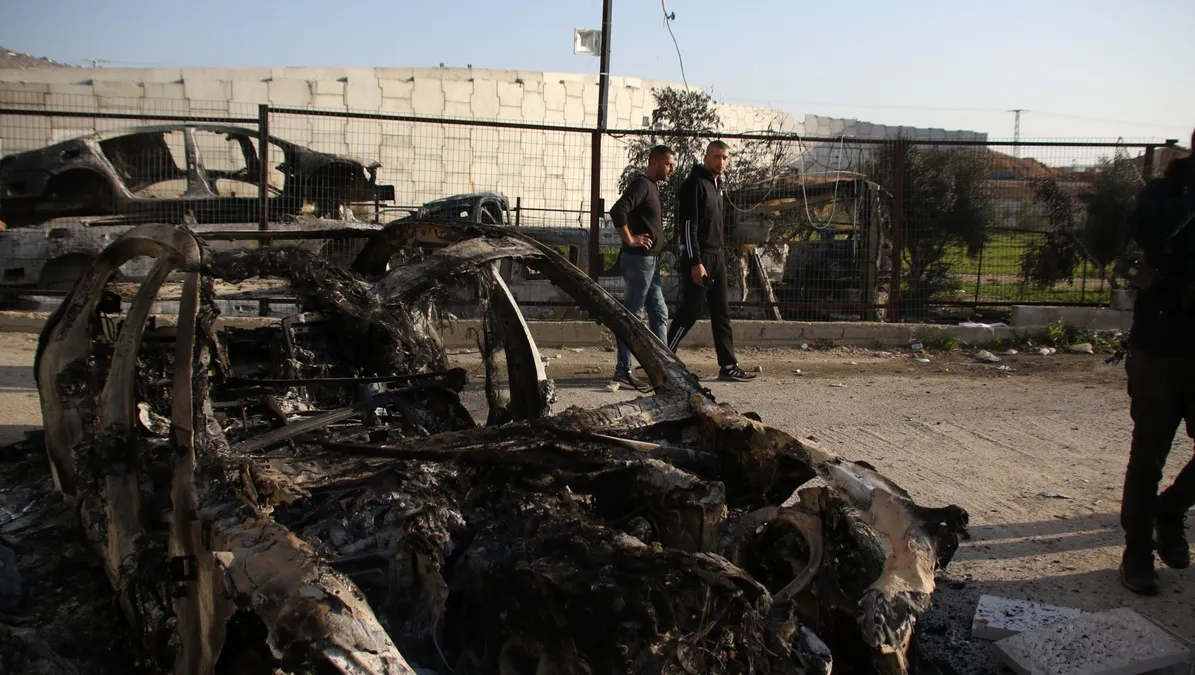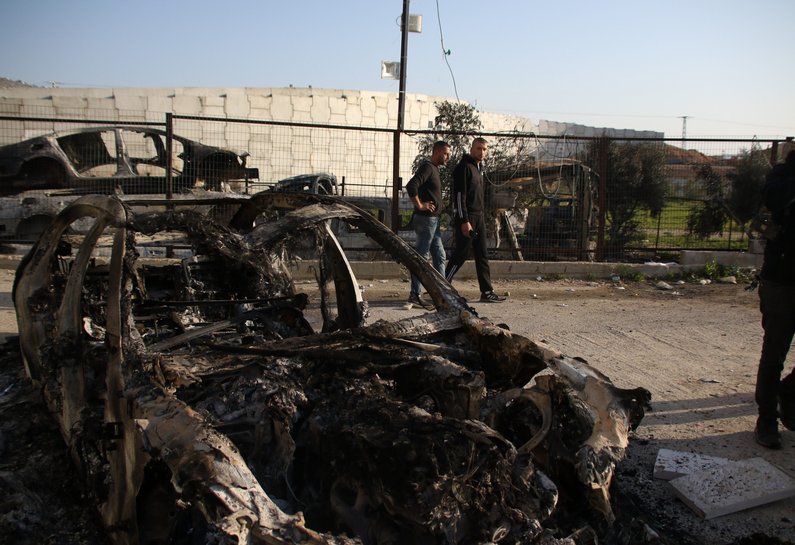MAP equipping hospitals and first responders as Israeli settlers rampage through northern West Bank
27 February 2023


Violence against Palestinians in the occupied West Bank continues to surge, and health services are struggling to cope with an influx of injuries resulting from attacks by the Israeli military and settlers.
In the latest in a number of deadly incidents, on 26 February Israeli settlers, many of whom were armed, rampaged through the areas of Huwara, Burin, Zaatara and Beit Furik, in the Nablus Governorate, killing one Palestinian, burning down at least 35 Palestinian homes and damaging 40 more, and setting fire to hundreds of cars.
According to the Palestine Red Crescent Society (PRCS), more than 400 Palestinians were injured, including as a result of stabbings, physical assaults with metal tools and rocks, and hundreds suffocated by teargas. The attacks followed the killing of two Israelis – who come from a nearby settlement – by a Palestinian on the road through Huwara.
Israeli forces and settlers once again obstructed PRCS emergency teams from accessing wounded Palestinians, damaged their ambulances and physically attacked their staff. The PRCS had four ambulances already stationed in Huwara, and five more were dispatched to respond to the violence but were denied access to the area for two hours.
In one instance, a PRCS ambulance was denied access to a patient’s home and the team were forced to travel for 300 metres on foot to the location. Along the way, the team faced threats to their safety in an extremely dangerous environment.
Medical Aid for Palestinians (MAP) strongly condemns these violent riots, and the continued complicity of Israeli forces with settler attacks on Palestinians. We are calling for urgent international action to end Israeli settler and military violence in the West Bank. If you are in the UK, please email your MP today to urge them to raise the alarm.
Since the beginning of the year, Israeli forces and settlers have killed at least 60 Palestinians, including at least 13 children, in the West Bank according to the Palestinian Ministry of Health. Hospitals and first responders are struggling to cope, lacking many medicines and disposables they need to treat trauma wounds and keep essential services running.
During the rampage in Huwara, Israeli forces closed checkpoints around Nablus, severely restricting access in and out of the city. At the time, members of MAP’s West Bank team were delivering emergency medical supplies to Rafidia Hospital in Nablus, which is close to Huwara, which has been treating many of those injured by live ammunition during an Israeli military raid in Nablus city on 22 February, which killed 11 Palestinians and injured more than 400 more.
Hana’a Qaysse, MAP’s Programme Officer in the West Bank, was one of those who found themselves trapped in the city: “At 2.00pm, I heard from healthcare workers in Nablus that Israeli soldiers had closed the city and prevented anyone from entering or leaving. Even ambulances were denied from reaching injured Palestinians.”
Hana’a was worried that their car would be attacked by settlers on their journey south: “I was really scared and I didn’t know what to do. My husband called me several times to check on me and make sure I would return safely home. I felt trapped and was worried I would be forced to stay in Nablus and be away from my one-year-old and four-year-old children.”
“Eventually, I heard that the Hamra checkpoint near Jericho was open and I was able to drive back to my home in Ramallah. It took me four hours to get home. It usually takes me about 45 minutes.”
As part of our emergency response to growing violence in the West Bank, MAP has also delivered first aid kits to the Palestinian Medical Relief Society to support their volunteers in Nablus, Jenin and East Jerusalem – three cities which have witnessed the most intense Israeli military and settler violence this year.
As pressure continues to mount on hospitals and first responders, MAP’s emergency response is as critical as ever. With the Israeli military regularly restricting the free movement of health workers and ambulances, equipping local volunteers to stabilise the wounded is essential to saving lives.
We need your continued support to ensure Palestinian health workers have the supplies they need to save lives. Please consider making a donation to our emergency appeal today.
Photo: Israeli settler violence in Huwara, near Nablus. (Credit Wahaj Bani Moufleh).